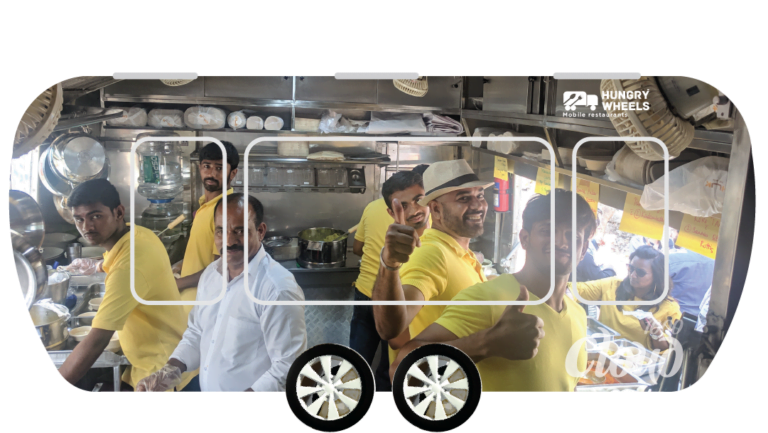You may be familiar with the concept of school pods, where families come together for homeschooling or distance learning. But have you ever heard of a food pod? Until now, neither had we! Whether you’re a busy professional, with or without kids, cooking solo, have a home cook, or even a personal chef, this is something worth exploring!
A food pod involves joining forces with others to prepare meals in bulk that can be shared among households. One household hosts the cooking session, prepares the meals for the week, and then the other households take turns picking up their share of the prepared food, rotating the hosting duties. This way, you cook once and enjoy a variety of dishes throughout the week. You can organize and cook everything yourself, or enlist the help of a Foodom cook to handle the meals!
What is Food Pod
A food pod is a culinary concept where individuals or groups come together to prepare meals in bulk, typically in a communal kitchen space or through a coordinated effort. These meals are then divided and shared among participating households, providing a convenient and cost-effective way to enjoy a variety of dishes throughout the week. Food pods can be organized among friends, neighbors, or community members, and they offer a collaborative approach to meal preparation and sharing.
Food Pod Business is Profitable or not in India
The profitability of a food pod business in India can vary depending on various factors such as location, target market, competition, and operational costs. Here are some considerations to keep in mind:
1. Location:
The success of a food pod business heavily depends on the choice of location. High foot traffic areas, office complexes, universities, and event venues can be lucrative spots for food pods to attract customers.
2. Target Market:
Understanding the preferences and demographics of the target market is crucial. Offering diverse cuisines and catering to dietary preferences can help attract a wider customer base.
3. Competition:
Assessing the competition in the area is essential. Identifying unique selling points and offering something different from existing food options can give a food pod a competitive edge.
4. Operational Costs:
Managing operational costs such as food sourcing, equipment maintenance, permits, and staffing is critical for profitability. Keeping overhead costs low while maintaining quality is key.
5. Marketing and Branding:
Effective marketing strategies and strong branding can help attract customers and build a loyal following. Utilizing social media, promotions, and partnerships can increase visibility and sales.
Overall, with careful planning, strategic location selection, and effective management, a food pod business in India has the potential to be profitable. However, it requires thorough research, attention to detail, and adaptability to succeed in a competitive market.
FAQ: The Rise of Food Pod Culture in India
What exactly is a food pod?
A food pod is a mobile culinary concept where individuals or groups gather to prepare meals in bulk, often in a communal kitchen space. These meals are then distributed and shared among participating households.
Why is food pod culture gaining popularity in India?
Food pod culture is gaining traction in India due to its convenience, affordability, and communal aspect. With busy lifestyles and a growing interest in diverse cuisines, people are turning to food pods as a convenient way to access freshly prepared meals.
How does a food pod work?
Typically, participants in a food pod arrangement take turns hosting cooking sessions where meals are prepared in large batches. The meals are then divided among households, allowing each participant to enjoy a variety of dishes throughout the week.
What are the benefits of joining a food pod?
Joining a food pod offers several benefits, including cost savings through bulk meal preparation, access to a variety of cuisines, and the opportunity to connect with neighbors or community members over shared meals.
Can anyone join a food pod?
Yes, anyone can join a food pod, whether you’re an individual, a family, or a group of friends. Food pods are inclusive and can accommodate various dietary preferences and culinary interests.
How do I find or start a food pod in my area?
You can start by reaching out to local community groups, social media platforms, or online forums to inquire about existing food pods in your area. Alternatively, you can gather a group of interested individuals and start your own food pod by coordinating cooking sessions and meal distribution.
Are there any challenges associated with food pod participation?
While food pods offer numerous benefits, challenges such as coordinating schedules, managing logistics, and ensuring equitable distribution of meals may arise. However, effective communication and collaboration among participants can help address these challenges.
Is food pod culture sustainable and environmentally friendly?
Food pod culture promotes sustainability by reducing food waste through bulk meal preparation and encouraging the use of locally sourced ingredients. Additionally, many food pods prioritize eco-friendly practices such as composting and minimizing single-use packaging.
Are there any regulations or guidelines for operating a food pod in India?
Regulations for operating a food pod may vary depending on the location and local authorities. It’s important to familiarize yourself with any applicable regulations regarding food preparation, hygiene standards, and permits required for operating a food-related business.
How can I support the growth of food pod culture in India?
You can support the growth of food pod culture in India by participating in existing food pods, sharing information about food pods with your community, and advocating for policies that promote small-scale food entrepreneurship and communal dining experiences.
Please contact HungryWheels for your food pod needs, and our team will be happy to assist you.
Mobility architect, system designer, and ecosystem builder
Since 2012, he has developed various scalable vehicle platforms and solutions for retail, logistics, and defense. As a possibilist, futurist, and innovator, Vikram’s designs have powered the success of Food POD mobile kitchens at ITC, TAJ Hotels, Qmin, Manipal Group, and more.





